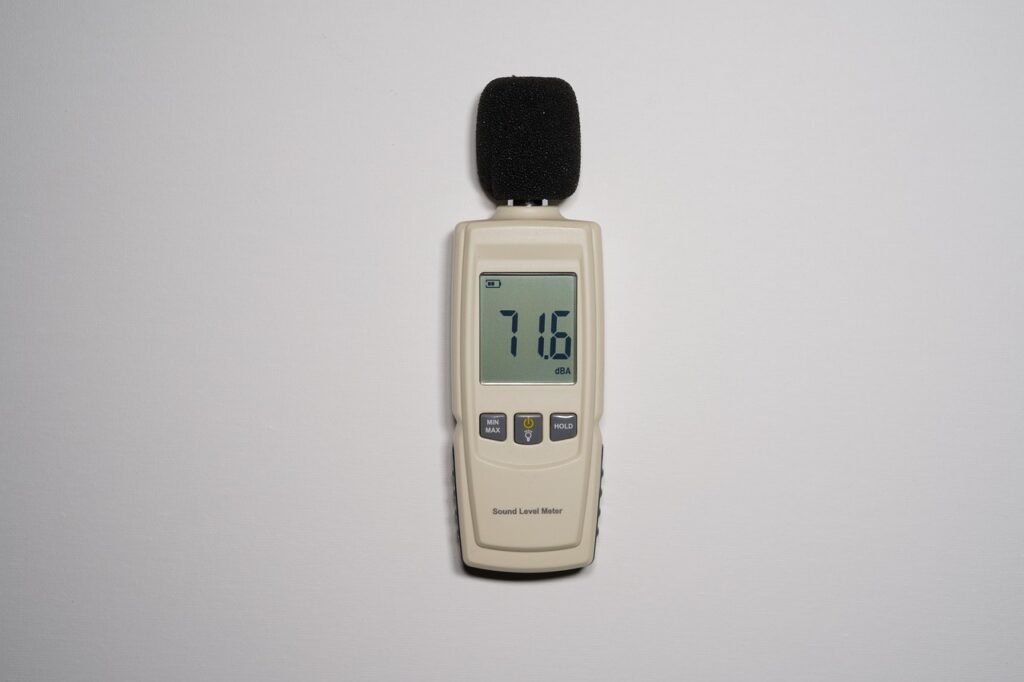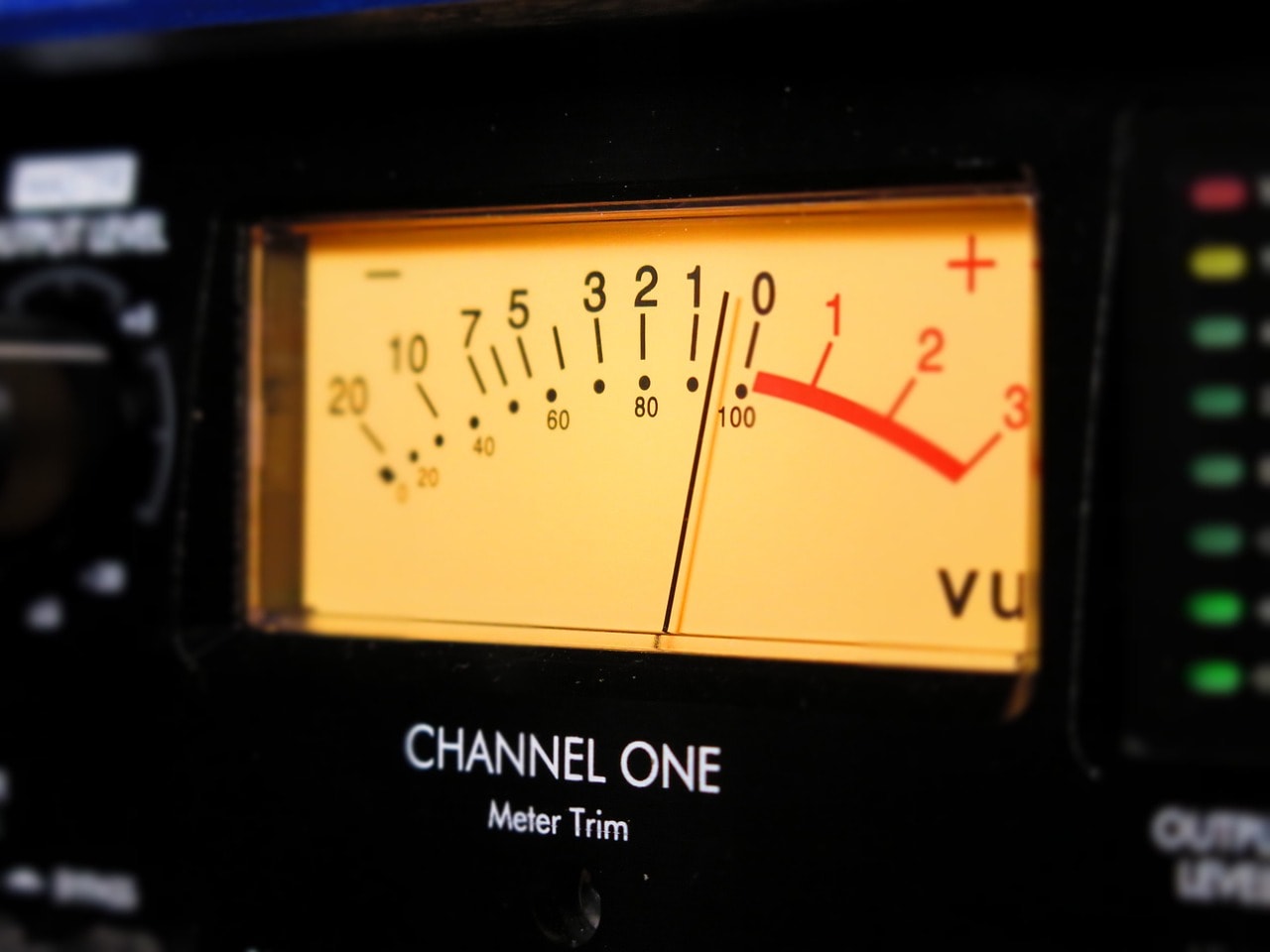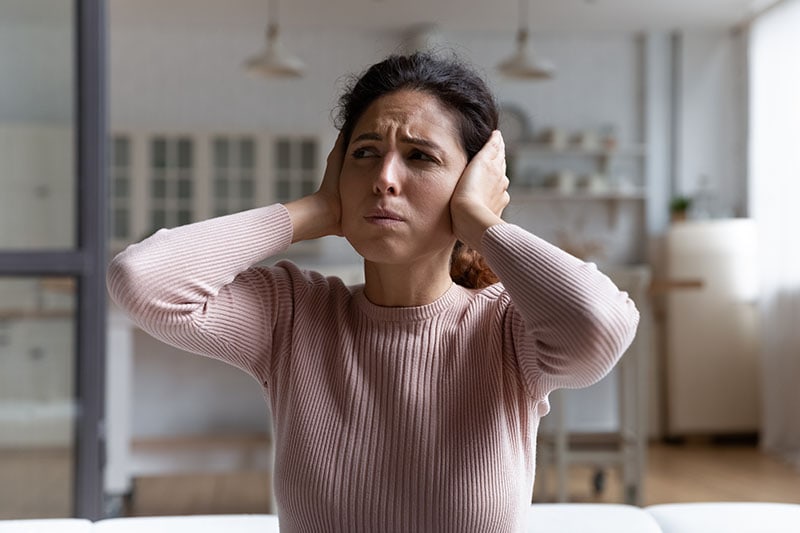How Loud Is 110 Decibels (dB)? With Noise Comparison Chart
-
Pete Ortiz
- Last updated:

Any type of noise that falls around the 110 dB range has the potential of permanently damaging your ears if you’re exposed to it for an extended period of time. The 110 dB is about as loud as someone’s honking their horn in traffic.
The ear is one of the most important sensory organs of the body. You see, besides the fact that it’s primarily tasked with picking up sound waves, it’s also instrumental in ensuring that we stay balanced while in a vertical position.
This structure is home to the vestibular system, which is commonly referred to as the balancing organ. The whole system is made up of two otolith organs—the saccule and utricle—and three semicircular canals.
Read on below for more information on how loud 110 dB is, and when it can be harmful.
What’s a Decibel and How’s It Measured?
The decibel is the SI unit of sound or noise. SI is an acronym for the International Standard of units, which is a metric system of expressing the quantity or magnitude of a natural phenomenon. For example, the SI unit for electric current is ampere (A), and that of height is in meters (M). We usually abbreviate “SI” instead of “IS” because it originated from the French name, Système international d’unités.
The decibel measuring scale is not linear, but logarithmic. To put it simply, just because a 10-decibel sound is 10 times more intense than a zero-decibel sound, doesn’t mean that a 20 dB sound will be 20 times more intense. Because in reality (and you’ll agree with us once you experience it) it’s 100 times more intense.
We usually use decibels scales to figure out if the sounds being produced in our immediate surroundings are safe for human hearing. The quietest sound should be zero decibels, while the loudest to ever be recorded was 300 to 315 dB.
According to studies conducted by specialized health institutions such as the Centre For Disease Control and Prevention (CDC), any form of noise that’s above 70 dB should be treated as a cause for concern. Depending on the duration of exposure, anything above that level can lead to temporary or permanent hearing loss.

Noise Comparison Chart
| Level | Decibel | Common Sound Description |
| Faint | 20 dB | Rustling of leaves |
| Soft | 30 dB
40 dB |
Someone whispering
A quiet space, like a library |
| Moderate | 50 dB
60 dB |
Rainfall
Sound of a normal conversation, sound made by a dishwasher |
| Loud | 70 dB
80 dB |
Vacuum, noise made by vehicles in traffic
Alarm clock ringing |
| Very Loud | 90 dB
100 dB
110 dB |
Mixing blender, lawnmower
Snowmobiles
Music at a concert, honking car horns |
| Uncomfortable | 120 dB | Jet taking off |
| Painful and Dangerous | 130 dB
140 dB |
Sirens
Gunshots |
Do Loud Noises Cause Permanent or Temporary Hearing Loss?
If your ability to hear any type of sound or noise in your surroundings decreases, you’re experiencing hearing loss. This type of loss usually happens when the nerves in your ear or certain parts fail to function the way they are supposed to.
It mostly has to do with the way they carry information and relay it to the brain. If for some reason, they are not picking up the signals or sound waves in the correct fashion, you’ll immediately note the changes.
Hearing loss can be permanent or temporary. In a temporary case, there’s still hope for the patient to recover his/her/their initial hearing abilities. However, in a permanent case, nothing can be done to reverse the damage. Permanent loss often occurs when the damage caused significantly affects the vital parts of the organ beyond repair.
Loud noises usually target the innermost part of the ear, which is the cochlea. People normally think that it takes more than one exposure to completely damage your ears, but that’s false. The cochlea membranes and the cells around that part can easily and quickly be damaged by a one-time exposure.
The impact of an extremely loud noise is different from that of a loud noise. For example, the sound made by a rocket blast-off is extremely loud and thus can damage your ears in an instant. Music at a concert is considered loud noise, but not categorized as extreme noise. You’ll have to listen to it for an extended duration before any damage is caused.
Sensorineural Hearing Loss
On average, we are all born with approximately 16,000 cochlea hair cells, which are arranged in rows. The inner cells are arranged in one row, while the outer cells are in three. The inner cells are more important in that they hold about 95% of the auditory nerve fibers that relay information to the brain.
Unfortunately, these cells don’t regenerate, and that’s why you start losing your sense of hearing as you grow older—the ones that die don’t get replaced. So, if you damage 50% of those cells, you’ll be diagnosed as having sensorineural hearing loss.

Is Temporary Hearing Loss an Indicator That Some of Your Cochlea Cells Are Dead?
No. If you’ve just attended a very loud event and you’ve noticed you can’t hear people whispering, or you feel like some of the sounds that you usually hear are somewhat muffled, give it time. The hair cells in your ears are just like blades of grass. When the wind blows, the blades bend in the opposite direction. But after a while, they go back to their straight position, and you’ll be able to hear everything.
Can the loud noises damage your nerves? Yes. And that’s even worse because nerve damage usually doesn’t show up in hearing tests. That’s why ENT (Ear, Nose Throat) specialists normally use the phrase “hidden hearing loss” to describe such a condition. You’ll feel the impact, but the tests will still reveal that you’re fine.
Conclusion
The effect of loud noises might not be felt or experienced during your younger years, but it will definitely change your lifestyle in the later years. Even if you’ve only attended a concert once, that small damage caused could quickly and easily progress into something serious.
Try and wear earmuffs in places where the noises and sounds are too loud for your liking. As Benjamin Franklin once said, “An ounce of prevention is always worth a pound of cure.”
Featured Image Credit: Pixabay
Contents


